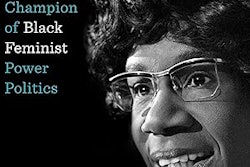As Chat GPT and other innovations that make use of artificial intelligence technologies are brought forward, faculty members and administrators throughout the academic community are appropriately raising concerns about their potential adverse effects on the higher education experience. However, the definition of intelligence as presented in Webster’s dictionary – the capacity to acquire and apply knowledge; the faculty of thought and reason; superior powers of mind – suggests the standard operational practices of higher education institutions, which provide intentional and specific exposure to curricular materials that undergird and support a system of white supremacy, have the effect of restricting the optimum intellectual development of all students.
 Dr. William B. Harvey
Dr. William B. Harvey
This huge distortion regarding the development of the American society is aptly represented in the “Columbus myth.” For generations, students were led to believe, and some still do, that Christopher Columbus “discovered” America. The notion is manifestly inaccurate on two levels. First, on none of his four voyages to the Western Hemisphere did Columbus ever set foot on the territory that we now identify as America. Second, even if he had landed on the territory, to say that he “discovered” it defies reason and logic since people had already been living in the space for centuries.
When students enter the postsecondary arena, they come with little, if any, knowledge about the creation and development of societies and cultures around the world, with the specific exception of those in Western Europe. Further, their understanding of the evolution of the geographic territory occupied by their own nation is circumscribed, limited by exposure to a demonstrably false narrative that little to nothing of any significance or importance occurred within this space called America prior to the arrival of European explorers in the 15th and 16th centuries.
A cluster of sophisticated societies, the products of the indigenous populations, merit no mention in the lessons presented to students as they move through their pre-collegiate schooling mechanisms. When the students arrive at their postsecondary institutions, the higher education community conveniently neglects its responsibility to address the deliberate omission, even though curricular content at the lower levels is essentially determined by university officials. On the whole, Native Americans have routinely been characterized as intellectually limited and marginally civilized, having accomplished very little to note prior to their encounters with the colonizers. This negation of their humanity and their consequent relegation to sub-human status based on their racial identification provided justification for the pattern of horrific treatment inflicted upon them – a pattern that laid the foundation for the system of chattel slavery later imposed upon millions of hostages stolen from Africa.
After generally ignoring the perspectives, points-of-view, and even the substantive contributions of people of color to the development of the society, academic institutions recently have begun to move farther away from the previously sacrosanct notion that centered “authentic” knowledge almost exclusively within the realm of Western European males. The reaction to making a broader stream of knowledge and information available in colleges and universities has provoked a highly predictable, extremely negative reaction from political conservatives. They decry a “woke” curriculum, without defining the term so that it seemingly covers a range of potential subjects they prefer not to have examined, extending all the way from racism, sexism, antisemitism, and homophobia to climate change and environmental justice. The vilification and distortion of the pedagogical approach known as critical race theory has been stretched so far that, in some instances, teaching anything about the racial circumstances in historical or contemporary American society can be interpreted as a criminal offense.
In a message of congratulations to the general public on the recent occurrence of Juneteenth, comedian and social analyst Trevor Noah deftly summarized the circumstances that challenge the academic community. He noted that the country has reached a curious point at which we have a national holiday and where, in certain parts of the country, it is unlawful to teach about the circumstances that led to its creation. The academy has a history of producing graduates who are “artificially intelligent” because as a means of supporting the existing social order, imposed limits on academic content and approach have been installed. The conservative political fringe wants to extend this arrangement and to limit students’ access to truth and historical reality – concerned individuals from all backgrounds who want the next generation of leaders to move the society forward, rather than backward, must make it clear that this is not acceptable.
Dr. William B. Harvey is a veteran higher education leader. He currently serves as Distinguished Scholar at the American Association for Access, Equity and Diversity in Washington, DC.



















